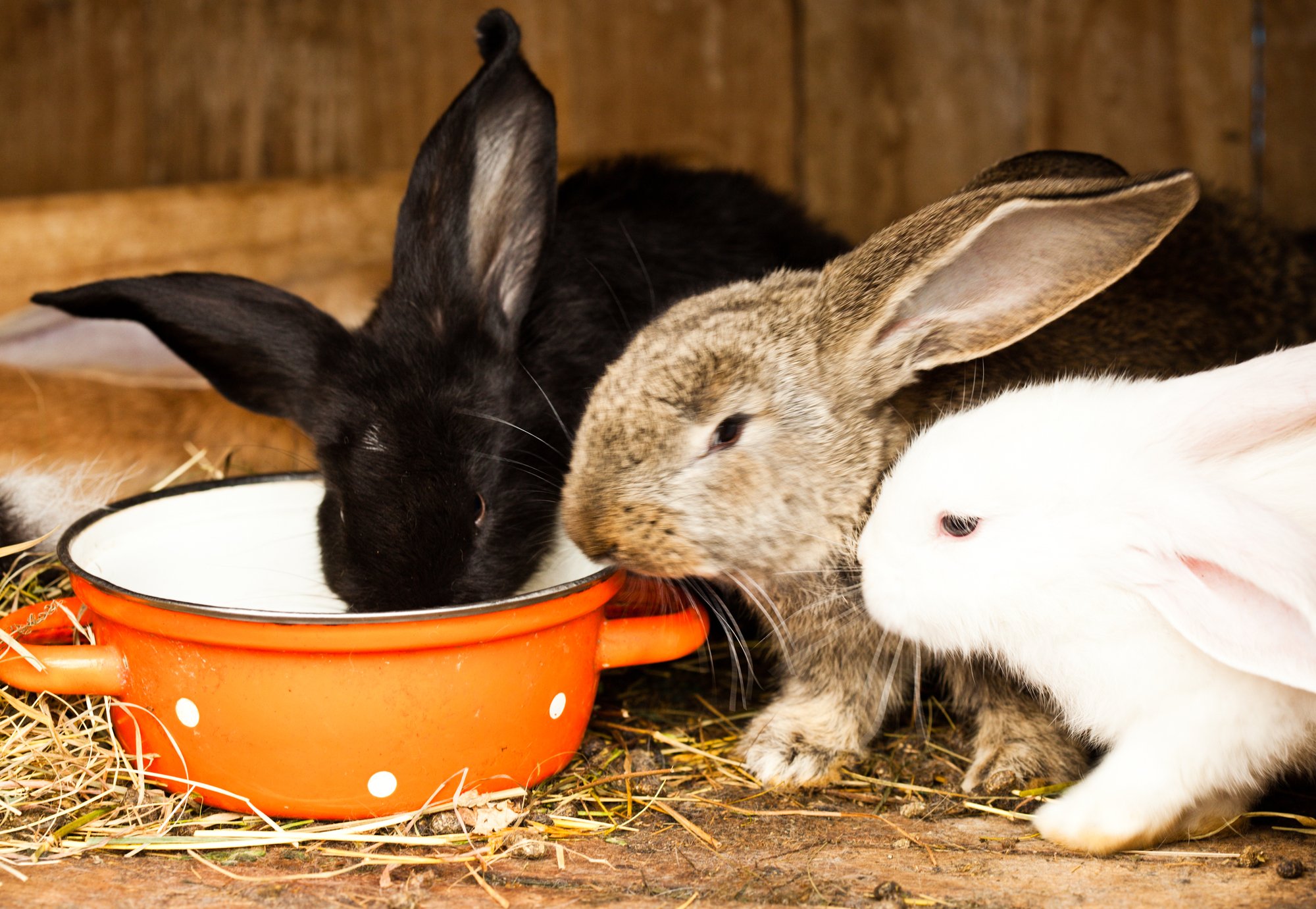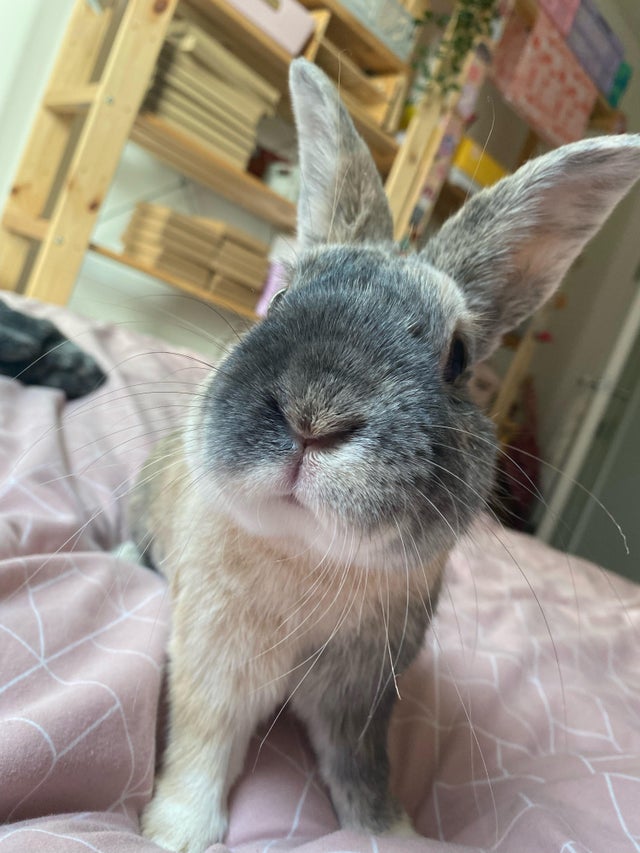If your rabbit is eating but not pooping, it may be suffering from an intestinal blockage or gastrointestinal stasis. Intestinal blockages can occur due to a variety of reasons such as hairballs, infection, foreign objects, parasites, and other digestive problems. Gastrointestinal stasis refers to the slowing down of normal digestion in rabbits which can cause them to stop passing feces altogether.
This condition is often caused by stress or a poor diet that lacks the necessary fiber content and water intake. If you observe any signs of these issues, take your rabbit to the vet immediately for treatment. To try and prevent this issue from occurring in the future make sure your rabbit has a balanced diet with plenty of hay and fresh vegetables along with access to clean water at all times.
Additionally, provide plenty of exercise opportunities for them daily so they stay active and healthy.
Rabbits are unique creatures, and their digestive system is no different. If your beloved bunny isn’t pooping but is eating normally, it could be a sign of an underlying health issue that needs attention from a veterinarian. In some cases, the lack of pooping can also indicate stress or dietary changes.
Monitor your rabbit closely to make sure they’re getting enough exercise, eating enough hay and fresh vegetables and fruits, drinking plenty of water, and maintaining their regular bathroom habits. If you went to know more about rabbit not pooping but eating, keep reading!
Rabbit Constipation (Causes And Treatment)
How Long Should a Rabbit Go Without Pooping?
A rabbit should go no more than 24 hours without pooping. If a rabbit does not poop for more than 24 hours, it is important to take them to the vet as soon as possible. A prolonged delay in defecation can be caused by an obstruction or digestive issue that may require medical attention.
Therefore, if your rabbit is unable to pass a stool after 24 hours of not pooping, it’s best to seek professional help from a vet right away.
What Should I Do If My Rabbit is Not Pooping?
If your rabbit is not pooping, the first thing you should do is check their diet. Ensure that they are getting enough fiber in their diet, as this can be a key factor in preventing constipation and other digestive problems. You may also want to provide them with fresh vegetables or hay to help stimulate digestion.
If these dietary changes don’t result in improved bowel movements, then it’s possible that there could be an underlying medical issue causing the problem. In this case, it may be best to take your pet to a vet for further examination and treatment if needed.
What Can I Give My Bunny to Help Him Poop?
To help your bunny poop, it is important to provide them with a high-fiber diet. This can include hay, fresh vegetables and herbs, as well as commercial pellets formulated just for rabbits. Adding in some alfalfa hay or dried fruit such as papaya or pineapple may also be beneficial.
Additionally, making sure your bunny has plenty of water available at all times will help keep their digestive tract running smoothly. Exercise is also essential for good digestion; providing your rabbit with space to hop around and toys to play with will encourage movement, which helps stimulate digestion and encourage regular pooping!
How Do I Know If My Rabbit Has a Blockage?
If you suspect that your rabbit has a blockage, it is important to take them to the vet as soon as possible. There are several signs that can indicate a blockage, such as difficulty or pain when trying to pass stools and/or urine, excessive straining in the litter box, lethargy, and lack of appetite. Additionally, if your rabbit’s belly looks bloated or feels hard to the touch, this could indicate a blockage.
If any of these symptoms sound familiar, you should take your pet for urgent medical attention.

Credit: everybunnywelcome.com
Bunny Acting Normal But Not Pooping
If your bunny is acting normal in terms of eating, drinking, and running around but not pooping, it could be a sign of gastrointestinal stasis. This is a potentially serious condition that can cause intestinal blockage if left untreated. It’s important to take your bunny to the vet for an examination as soon as possible so they can diagnose and treat the problem quickly.
How to Treat a Constipated Rabbit
In order to treat a constipated rabbit, it is important to provide them with plenty of fresh water and hay. Additionally, you should ensure that their diet consists of high-fiber foods such as vegetables and grains. To help increase fiber intake, adding a tablespoon of canned pumpkin or pureed prunes to their food can be beneficial.
If the issue persists, consult your veterinarian for additional treatment options.
Rabbit Hasn’T Pooped in 2 Days
If your rabbit hasn’t pooped in two days, it is important to seek veterinary advice as soon as possible. This can be a sign of an underlying health issue, such as gut stasis or intestinal blockage. If left untreated, these conditions can become life-threatening for your pet rabbit and require immediate medical attention.
It is also important to ensure that your rabbit eats and drinks normally during this time and that their diet does not contain any spoiled food or toxins.
Natural Laxative for Rabbits
Natural laxatives are a safe and effective way to help your rabbit move their bowels. One of the best natural laxatives for rabbits is ground flaxseed, which provides fiber that helps stimulate digestion and encourages healthy elimination. Additionally, carrots can be given as a treat or snack in small amounts as they contain soluble fiber that helps soften stools.
Apple cider vinegar mixed into water can also provide the same benefits as it contains organic acids, which help to break down food particles in the digestive tract.
Rabbit Hasn’T Pooped in 6 Hours
If your pet rabbit hasn’t pooped in 6 hours, it may be a sign of an underlying health condition. If you are concerned about your rabbit’s lack of defecation, take them to the vet for a checkup as soon as possible. Common causes for no pooping include constipation due to insufficient fiber intake or dehydration from not drinking enough water.
Other potential issues could be intestinal blockage due to fur balls or a dietary intolerance that is causing abnormal digestion and absorption. Your vet will work with you to determine the cause and provide appropriate treatment options so your bunny can get back on track with regular poop production.
Rabbit Constipation Massage
A rabbit constipation massage can be an effective way to help relieve your pet of uncomfortable constipation. This technique involves gently rubbing your rabbit’s abdomen in a circular motion and then pressing down on the area where its intestines are located. Doing this helps stimulate peristalsis, which is the movement of food through the digestive tract.
Additionally, it increases blood flow to the abdominal area, helping to naturally move waste along while relieving any bloating or soreness that may have occurred due to constipation.
How Long Does It Take for a Rabbit to Poop After Eating
After a rabbit eats, it typically takes between 30 minutes to 1 hour for them to defecate. The amount of time can vary depending on the type and quantity of food eaten as well as the individual rabbit’s metabolism. Additionally, rabbits tend to produce more droppings when they are in a relaxed environment or surroundings that they feel safe in.
My Rabbit is Peeing But Not Pooping
If your rabbit is peeing but not pooping, then it could be a sign of a more serious underlying issue, such as an infection or blockage. It’s important to take your rabbit to the vet right away if they are having any kind of problem with their elimination habits, as this could indicate a potentially life-threatening condition. Your vet will be able to diagnose and treat the issue quickly so that your rabbit can return to its normal healthy state.
Conclusion
In conclusion, it is important to pay close attention to your rabbit’s eating and pooping habits when looking for potential health issues. If you notice that your rabbit has stopped pooping but continues to eat as normal, it is likely a sign of an underlying health problem that needs to be addressed by a veterinarian. It can also be helpful to provide ample fresh hay and water in order to ensure that your rabbit is getting all the nutrition they need while preventing constipation or other digestive issues. Thank you for reading our post about rabbit not pooping but eating.

